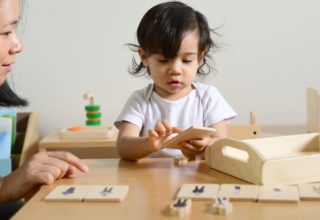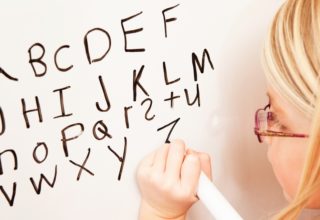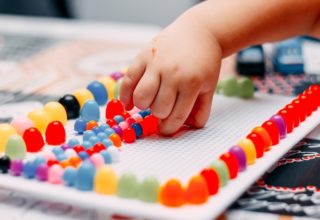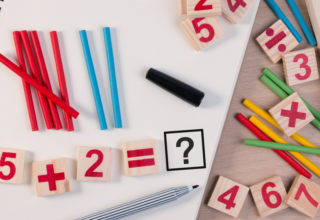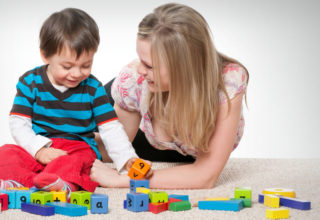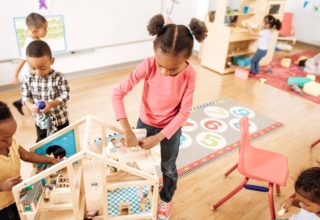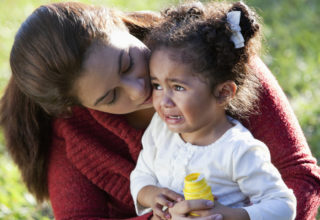Pre-Academics
Teach your child the seeds of knowledge through play and by learning in context. Raise creative, curious and capable thinkers.
Language Development Writing Math Reading Spelling Milestones Preschool Readiness Kindergarten Readiness Activities At HomeEasy things you can do every day to encourage your toddler to use more language. *Note – Suggestions in this article...
We’re often asked, “How do I know if my child needs speech therapy?” First, listen to your instincts. If you...
Learn the Montessori approach to learning language and how to apply it every day.
Teach your child to *THINK* before they speak – to consider the impact of their words (vs. their intent). A helpful...
Many of us are eager for our children to learn to write. It takes practice but it also needs to...
Whether a young child practices prewriting skills or an older child works on sight words, salt / sand trays are...
Is writing letters backwards OK, or is it an early warning sign of a learning difference? Let’s tackle this very...
Learning to write is a hallmark in a child’s education journey. It empowers them to express themselves and their talents....
Little hands often struggle to hold a pencil, especially when their muscles need some building. Fortunately there are many fun...
Sometimes, a child may have an efficient grasp and sufficient hand strength, but their handwriting strokes still do not produce...
When all the other pieces – like grasp and strength – are in place, it may be time to practice....
If a child is too forceful with their grasp, the pressure used will lead to quick fatigue. To help prevent...
A curated guide of creative and fun everyday activities your child can do to practice their spelling and writing. Great...
Many parents are eager to teach their children basic number concepts at a young age. For a 2-year old, exposure...
Take every opportunity to count…anything, everything! It may feel common sense to us grown-ups, but fluency in talking about numbers...
Learning to count may seem simple, but it is critical to learning well. Here’s how to do it playfully. The...
Tips from an elementary school teacher for parents when teaching math. Key things to remember when supporting your child’s mathematical...
Consider this your guide and script for how to respond and deepen your child’s understanding of math. Learn how to...
Understand how to help your child with math skill development and learn common math terms and strategies that teachers use....
Some children are naturally drawn to learning letters, while others may not begin to learn letter identification until they are...
Learning to read is incredibly empowering for a child, but it’s also very complex. There is no quick-fix or shortcut....
Book selection is key in helping your child learn to read. Parents of emergent and early readers are often tempted...
How is your child dealing with words they can’t read? Here’s an observation tool that can help inform how your...
Increase critical thinking and curiosity when you read aloud. Take story time to a new level.
If you’re looking for a didactic list, here’s a theoretical, academic sequence for teaching your child to read. Just remember...
Your child may not want to learnt to read – *yet*. It’s completely normal and natural. Reading is hard. Reading...
A simple primer for parents that outlines the mechanics of what it means to learn to read when you’re a...
Reading aloud is important even for older children and proficient readers. Discover the benefits of reading aloud to your child,...
Learn specific tips from a teacher on how to read aloud to your child, listen to your child read aloud...
A primer on why and how learning to spell is such a powerful and fundamental concept for early learners and...
A frequent question teachers are asked by parents is, “Should I correct my child’s spelling?” Our short answer – “It...
A simple checklist for your child to know what to look for in their writing to strengthen their spelling skills...
A parenting script for when your child gets stuck on spelling and asks you for help, or doesn’t want to...
“It’s not about how smart you are, it’s about how you are smart.” -Howard Gardner
‘Sensory processing development’ is vital to understanding how children learn. It is deeply studied among early childhood experts, but not...
“What is a good resource to understand milestones for my child? At what age should they learn colors? Learn numbers?...
How do you know if your child is experiencing a developmental “bump”? How do you know if it is time...
Trying to figure out what to look for in a preschool and which questions to ask when visiting schools? Learn...
Are you in the midst of visiting preschools and trying to decipher what to look for in a classroom and...
Learn the strategies, tools and what to say to manage a healthy separation process between you and your child, especially...
The parent/caregiver-child separation process is often an emotional experience, and every child and family experiences it differently. Discover answers to...
#1 daily challenge with children: How to get from A to Z without fighting, yelling or throwing a tantrum? Learn why...
Knowing why transitions are difficult is half the puzzle. The other half is how to get through them. Teachers go...
Simply saying “Share!” holds little meaning for children. Young children are egocentric and concrete thinkers. Their experience of the world...
Conflict is natural for preschoolers who are just learning about peers and group settings – it is expected, healthy and...
Imagine a magical world where children are internally motivated to be kind and generous. It’s doable!
Acknowledge and promote positive behavior….*Plinkit* with a Marble Jar! You’ll be amazed at the twinkle in your child’s eye each...
“Is my child ready for Kindergarten? What does that even mean?” Here’s my high-level perspective as a parent + teacher...
“I think I have a sense for Kindergarten readiness, now how can I support my child to get there?” Keep...
ABCs, colors, numbers, sight words…parents have heard of the ‘push-down’ of academic skills – that Kindergarten has a lot of...
Kindergarten is a meaningful adjustment – for parents too. We’ve got simple tips for parents for a not-so-simple transition –...
It’s hard to know what you don’t know as your child embarks on their learning journey and enters Kindergarten. Sure,...
Including your child in their own learning process about how to self-regulate is empowering and long-lasting. Here’s how everyday tools...
‘Executive functioning’ is a phrase often cited when talking about child development. But what does it really mean and how...
Nuts + bolts; let’s get tactical. Now that we’ve baselined the three primary processes of executive functioning, let’s look at...
Early learners learn best through hands-on, self-directed experiences. Try our Project-Learning Bingo – 24 project-based learning ideas to fuel your...
Ready-made cards with easy / no-prep, self-directed activities to entertain your toddler, preschooler and early learner. Excellent for when you...
Your go-to list of curated learning projects, activities and games that you can do at home to support your child’s...


